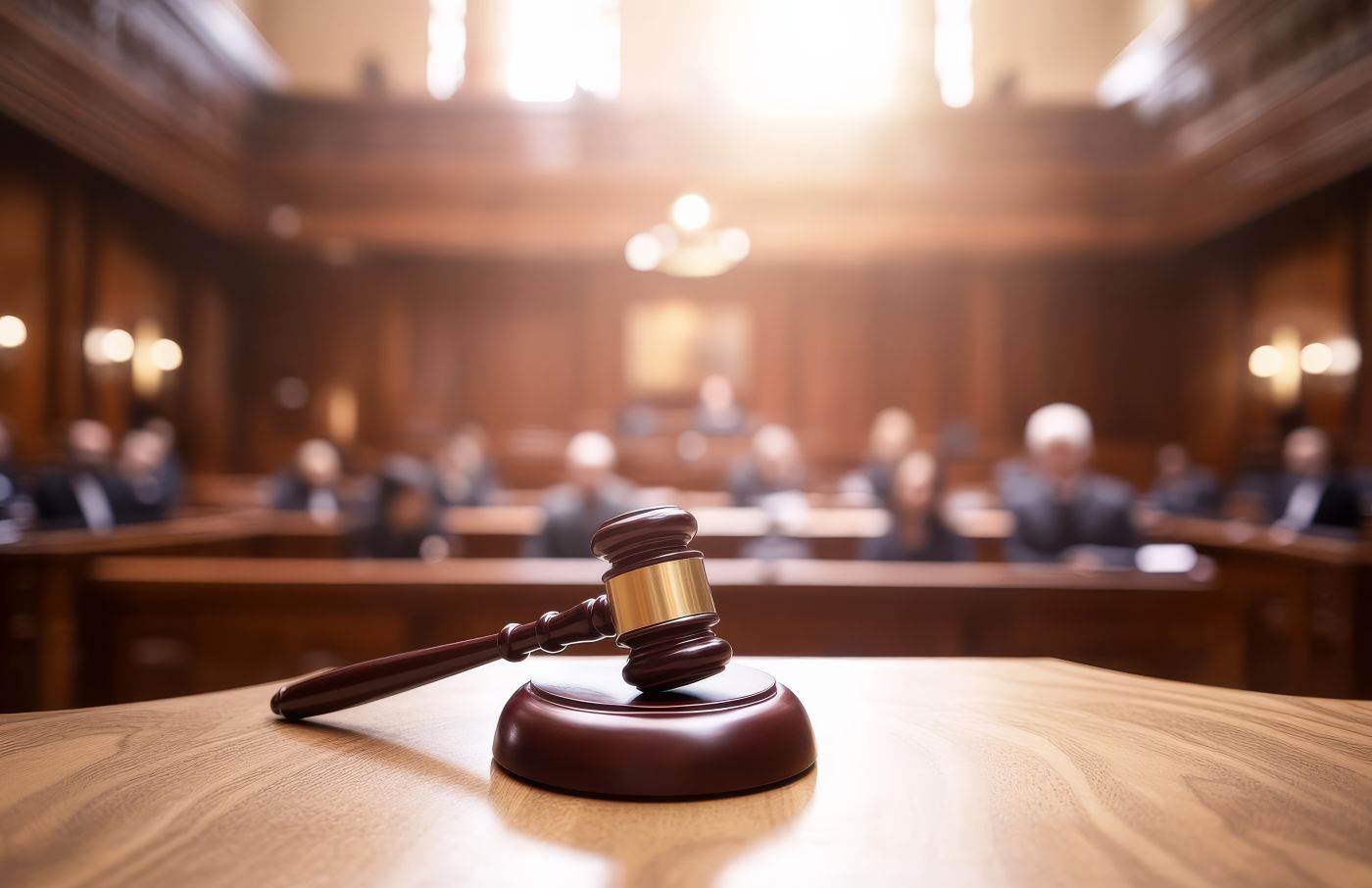
Civil litigation involves disputes that are resolved in the courtroom, where the stakes are high. Developing a solid defense strategy is key to preparing to face any challenges and setting up for success throughout the legal process. A well-thought-out defense strategy can make all the difference in achieving a favorable outcome for your case.
At Harris & Hart Attorneys at Law in Overland Park, Kansas, we recognize the importance of a strong defense strategy in civil litigation. Whether it’s a personal injury lawsuit, breach of contract, or wrongful death claim, having the right approach is essential to protect your rights and minimize potential consequences. Here's what to know about building your case.
What Are the Key Steps in Civil Litigation?
Civil litigation can be overwhelming, especially if you're unfamiliar with the process. The first step in defending yourself against a lawsuit is to understand the phases of civil litigation, from the initial filing of the complaint to the final resolution.
The key stages in civil litigation include:
Filing of the complaint: The plaintiff files a complaint outlining the claims against you.
Response to the complaint: Your attorney responds with an answer or a motion to dismiss.
Discovery phase: Both parties exchange evidence and documents related to the case.
Pretrial motions and hearings: Your attorney may file motions to dismiss or challenge certain evidence.
Trial and verdict: If no settlement is reached, the case goes to trial, where both sides present their case.
Post-trial motions and appeals: Following the trial, either party may file motions for a new trial or appeal the verdict.
Familiarity with the litigation process helps both you and your lawyer stay focused and prepare for any hurdles that may arise throughout the case.
How Do You Assess the Strength of the Plaintiff's Case?
Before you begin developing a defense strategy, it's crucial to evaluate the plaintiff’s case thoroughly, as a strong defense starts with an honest evaluation of the evidence, legal arguments, and witnesses the opposing party will bring to the table. By assessing the strength of the plaintiff's case early on, your attorney can determine how to counteract their claims.
Your attorney will likely perform the following steps to assess the plaintiff’s case:
Evaluate the evidence: Reviewing documents, physical evidence, and witness testimonies is essential for identifying weak points in the case.
Challenge the legal claims: A defense attorney will assess whether the plaintiff’s legal arguments are valid and whether they can meet the burden of proof required by law.
Assess witness credibility: Witnesses may have biases or inconsistencies in their testimony that can be used to weaken the opposing party’s position.
A well-prepared attorney will use this assessment to craft a defense that takes advantage of any shortcomings in the plaintiff's case.
What Are the Most Common Legal Defenses in Civil Litigation?
In civil litigation, numerous potential defenses can be used depending on the circumstances of the case. Identifying legal defenses early in the process is essential for creating an effective strategy. By countering the plaintiff’s claims with well-established legal defenses, your attorney can significantly improve your chances of success.
Some of the most common defenses in civil litigation include:
Lack of negligence: In personal injury cases, proving that the defendant was not negligent can lead to the dismissal of the case.
Statute of limitations: If the plaintiff waited too long to file the lawsuit, the case may be dismissed.
Assumption of risk: In some cases, the plaintiff voluntarily accepted the risks associated with an activity, such as in sports injuries or dangerous activities.
Contributory negligence: If the plaintiff's actions contributed to their injury or loss, this can be used as a defense to reduce liability.
Breach of contract: In contract disputes, demonstrating that the plaintiff failed to fulfill their obligations can be a strong defense.
By working closely with your attorney to assess which legal defenses apply to your case, you can create a strategy that addresses the plaintiff’s claims head-on.
How Can Gathering and Presenting Evidence Strengthen Your Defense?
Evidence is the backbone of any civil litigation case. Both sides will present evidence that supports their respective arguments. However, the evidence you present must be strong, credible, and clearly support your defense. Gathering and organizing evidence early in the process is essential to building a successful defense.
Key steps in gathering evidence include:
Collecting physical evidence: This can include items such as photos, documents, and any materials related to the case.
Interviewing witnesses: Eyewitness testimony can provide valuable information about the facts of the case. It’s important to interview witnesses early to get an accurate account of the events.
Documenting everything: Keeping track of all communications, contracts, emails, and other written correspondence is vital for building a defense.
Presenting this evidence effectively in court, either through exhibits or testimony, can help convince the judge or jury of your position. Proper organization and presentation are key to making your defense as strong as possible.
Why Is Expert Testimony Important in Civil Litigation?
In many civil litigation cases, expert witnesses are crucial for strengthening your defense. These experts bring specialized knowledge that can clarify complicated aspects of the case and help your side present a more credible argument. Experts can explain technical details, assess the reliability of evidence, and offer opinions that can undermine the plaintiff’s claims.
Common types of expert witnesses in civil litigation include:
Medical experts: In personal injury cases, medical professionals can testify about the extent of injuries and the long-term impact on the victim’s health.
Accident reconstruction experts: These experts can provide information about how an accident occurred and whether it was avoidable.
Forensic accountants: In financial disputes, forensic accountants can analyze records to determine the extent of damages or any fraudulent activity.
By leveraging expert testimony, your defense strategy can become more persuasive, demonstrating to the court that your version of events is backed by professionals in the relevant field.
How Does Settlement Negotiation Factor Into Your Defense Strategy?
While many civil litigation cases end up in trial, it’s often wise to consider settling before that point. Settlement negotiations can save time, save money, and avoid the unpredictability of trial. A skilled lawyer will always be ready to assess settlement offers and determine if they’re the right option for you.
Key points to keep in mind during settlement negotiations include:
Evaluating the offer: Your attorney will help you decide whether the settlement offer is reasonable or whether it’s worth pursuing further litigation.
Negotiating terms: Settlement negotiations can involve compromises, but an experienced lawyer will know how to advocate for your interests.
Alternative dispute resolution methods: Sometimes, mediation or arbitration can be an effective way to settle without going to trial.
By being open to negotiation, you may avoid a prolonged legal battle and achieve a resolution that works for you.
What Role Does Trial Preparation Play in Your Defense?
In the event your case goes to trial, trial preparation becomes critical for presenting the strongest defense possible. This phase involves organizing all evidence, preparing witnesses, and anticipating the plaintiff’s arguments. Trial preparation also includes rehearsing key aspects of the case to make sure you’re ready for the courtroom.
Key components of trial preparation include:
Witness preparation: Making sure that witnesses understand their role and what to expect during testimony is crucial for maintaining consistency and credibility.
Organizing exhibits: Your attorney will organize physical and documentary evidence to be presented in court, making sure it’s accessible and persuasive.
Mastering trial tactics: Trial tactics involve everything from delivering opening statements to handling objections and making persuasive closing arguments.
Effective trial preparation maximizes your chances of success in front of a judge or jury, making it a vital part of your defense strategy.
Contact Us Today
When it comes to civil litigation, it's essential to have a trusted attorney by your side. Contact our firm, Harris & Hart Attorneys at Law, today. Our attorneys serve clients in Kansas City, Lee’s Summit, Independence, Overland Park, and surrounding counties in Missouri and Kansas, including Jackson, Cass, Clay, Platte, Johnson, Ray, Leavenworth, Linn, Miami, Wyandotte, and Douglas counties.



